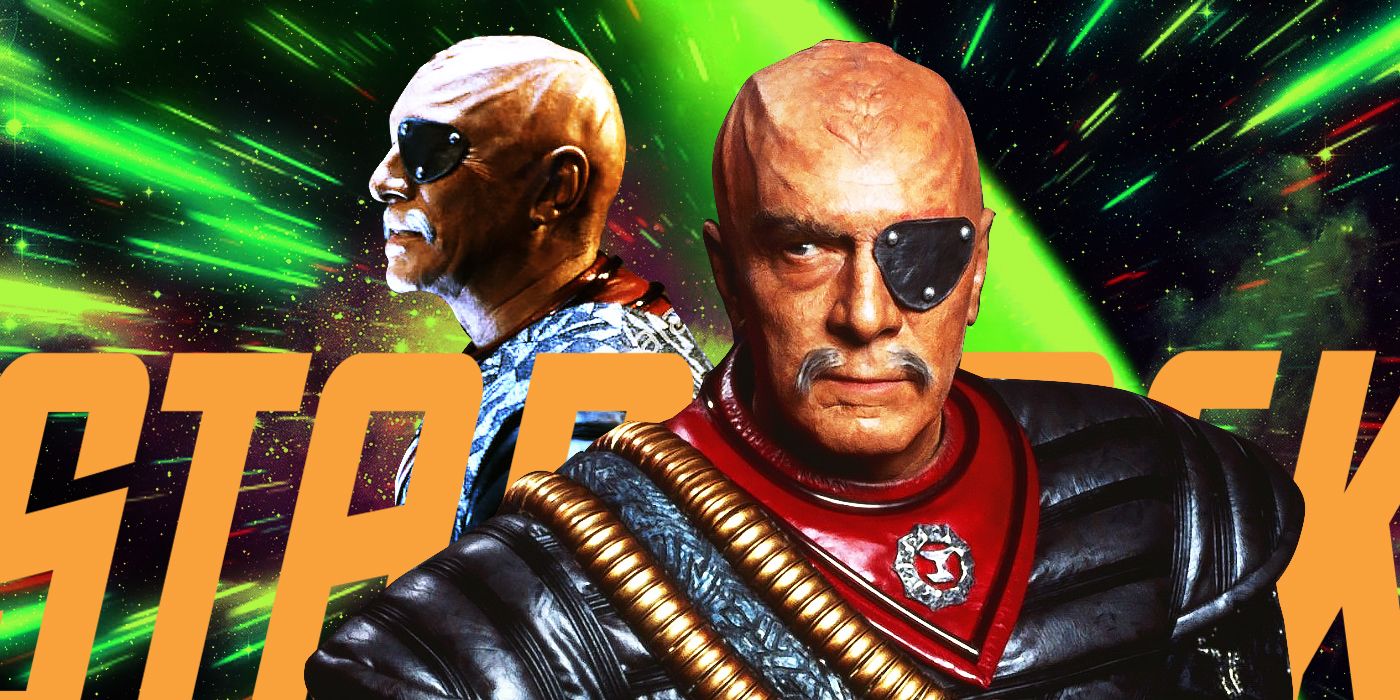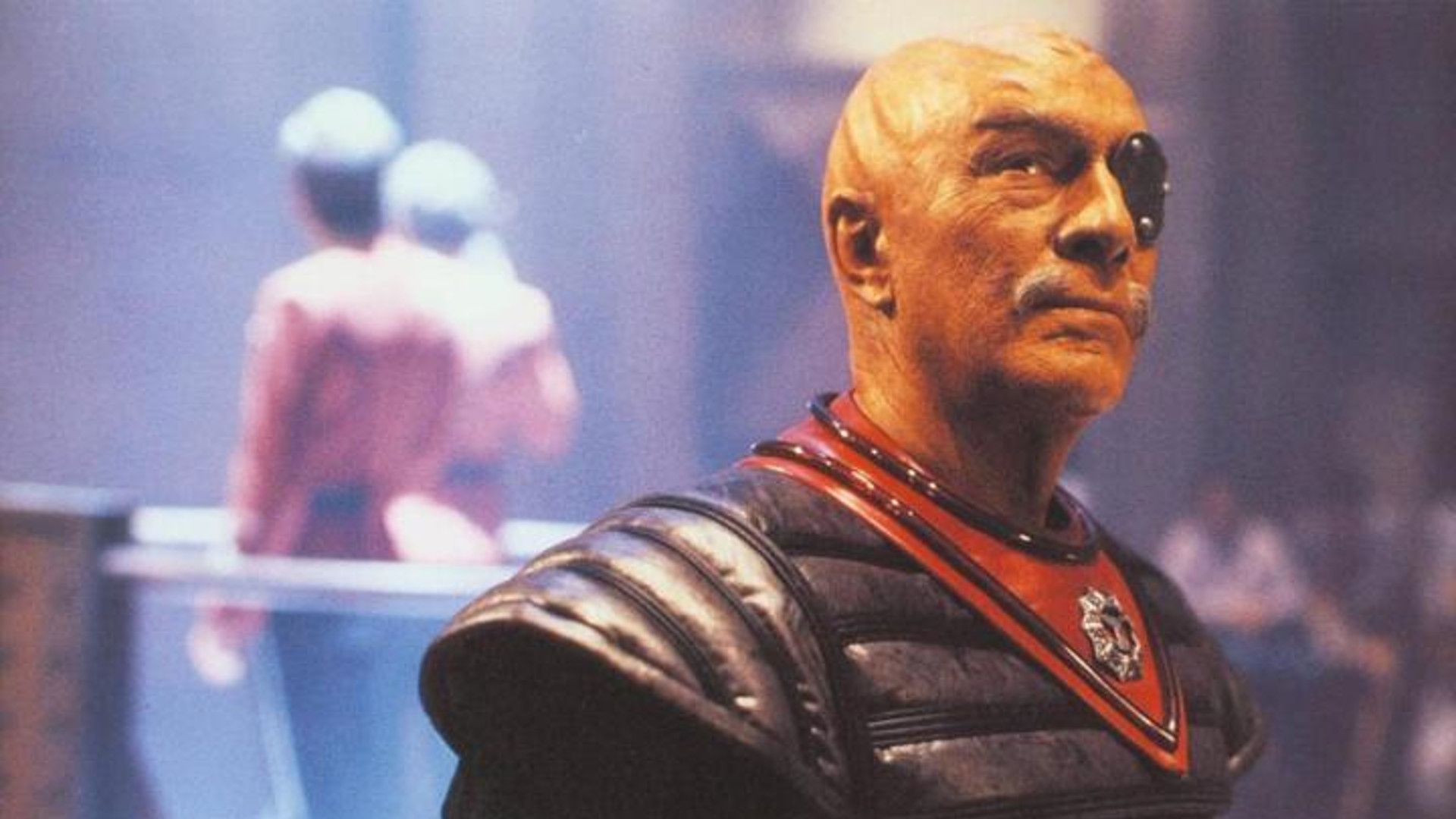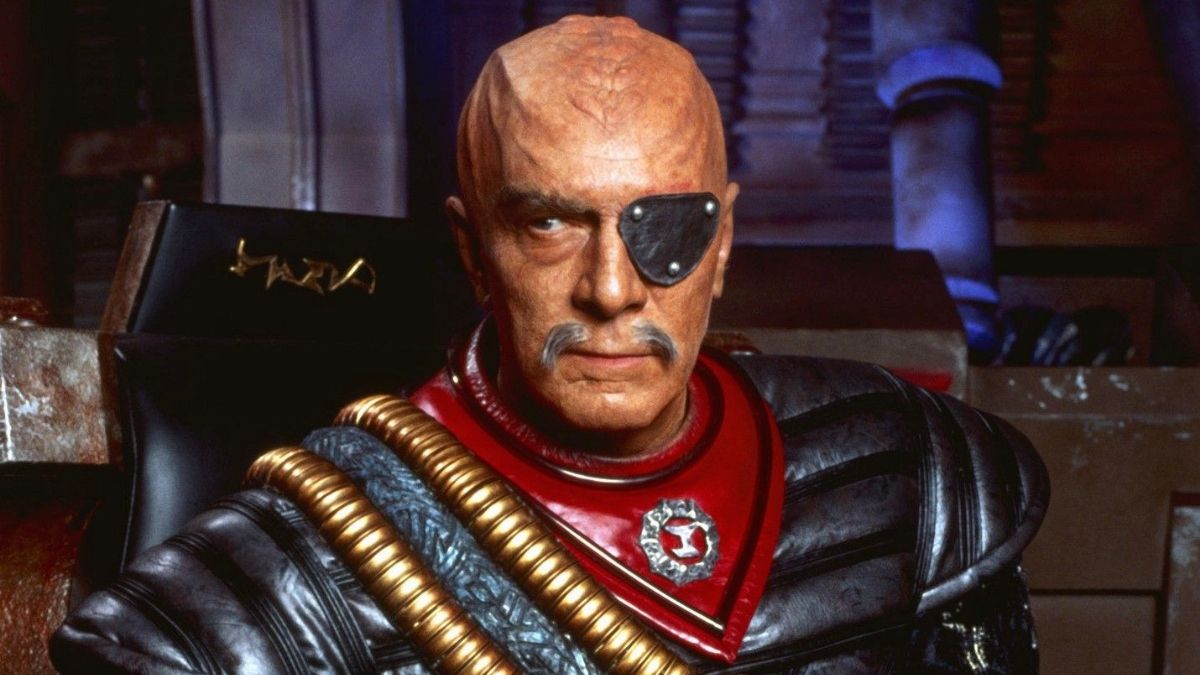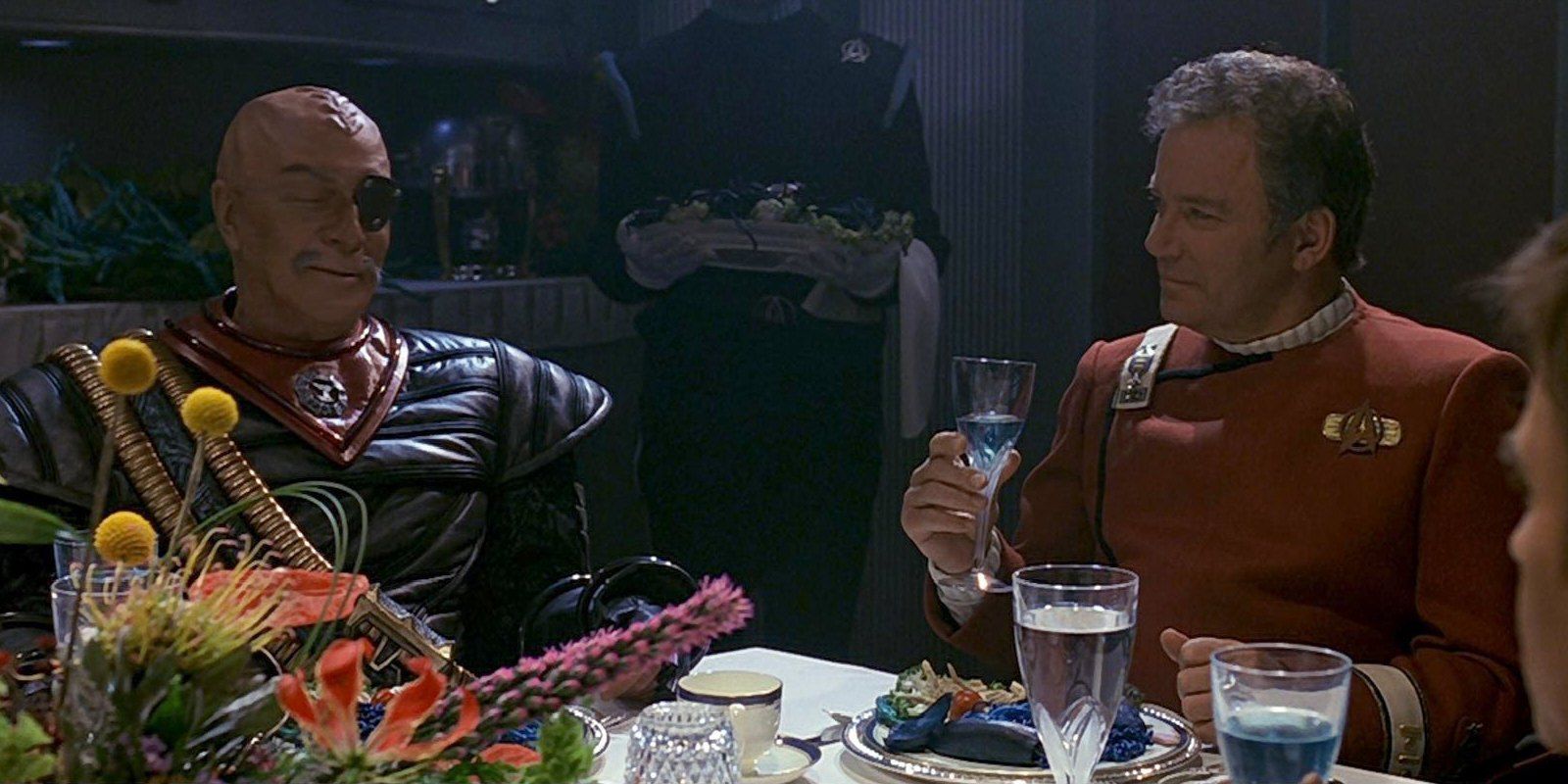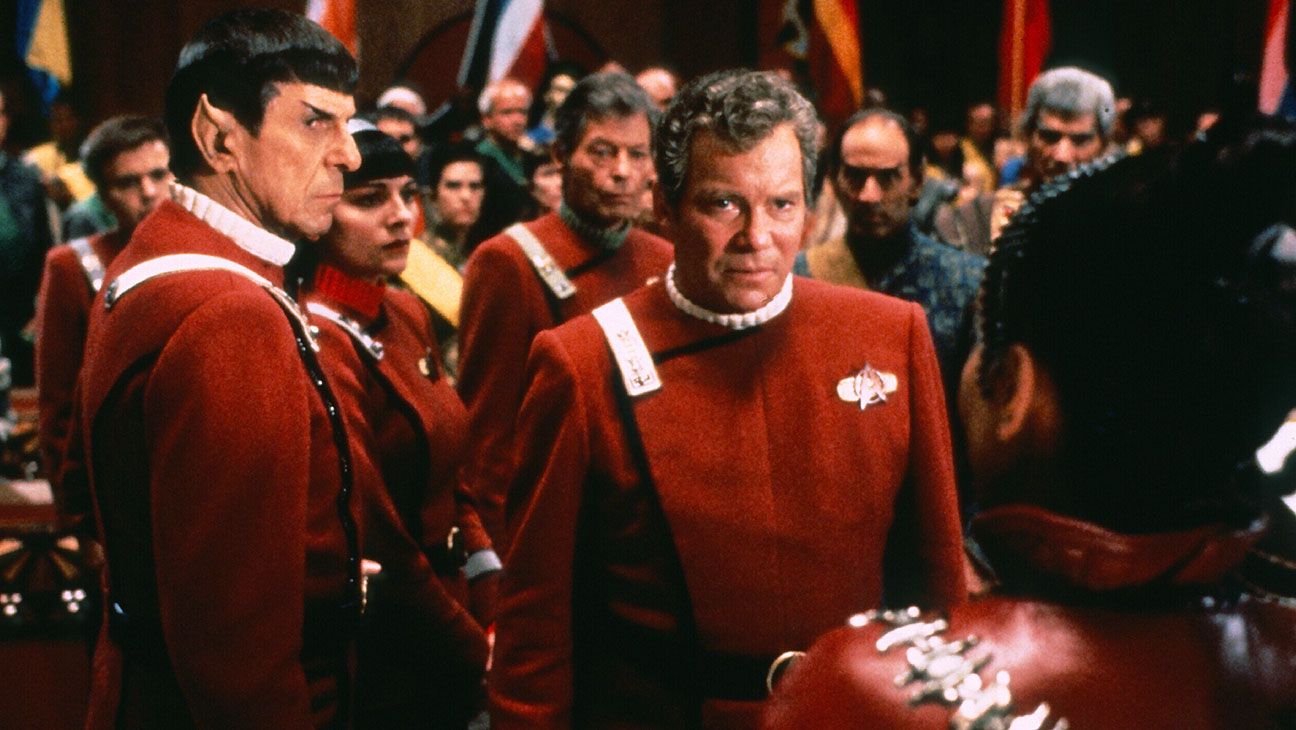Star Trek cinematic villains all live under the shadow of Ricardo Montalbán’s Khan. Montalban’s fearsome performance in Star Trek II: The Wrath of Khan is downright iconic, and it was essential in establishing legitimate stakes within the films after The Motion Picture failed to excite fans. Later films have been trying to replicate Khan ever since; Search for Spock and Nemesis also featured antagonists that kill off a main character, First Contact also brought back a popular threat from its respective television counterpart, and Into Darkness went so far as to reboot The Wrath of Khan entirely, using many of the exact same scenes with Benedict Cumberbatch in the role. No one came close to replicating Khan...except the filmmaker who created Khan in the first place. The final united adventure of the original crew in Star Trek VI: The Undiscovered Country had the benefit of bringing back The Wrath of Khan director Nicholas Meyer. On paper, Meyer’s literature-quoting Klingon villain Chang was a hollow copy of his prior success. However, Meyer had specifically written the role with a noted stage thespian in mind: the late great Christopher Plummer.
Plummer was initially skeptical about taking the part, and turned it down several times out of fear of the extensive makeup. However, the temptation for the lifelong Trekkie proved to be compelling. Stating that he couldn't “make the movie made otherwise,” Meyer gave Plummer the room to chew the scenery and infuse his love of Shakespeare in crafting the corrupt chief-of-staff to the Klingon Chancellor. Together, Meyer and Plummer crafted the only Trek baddie that could hold a candle to Khan Noonien Singh.
The Undiscovered Country already had a great premise. Instead of placing the heroes in a fast-paced adventure, Meyer took a step back to examine how the crew had aged and the ways their responsibilities in Starfleet had changed. In a clever parallel to then-current negotiations between the United States and the Soviet Union to bring an end to the Berlin Wall, the film explores the end of peace talks between the Federation and the Klingon Empire. Old wounds still run deep, and Kirk clings to the longstanding animosities from decades of fighting. Chang shares Kirk’s residual anger, and takes advantage of the tensions to craft a conspiracy to frame the U.S.S. Enterprise Captain for the assassination of the Klingon Chancellor.
While the film is written as a straightforward murder mystery by a militaristic extremist sect, Plummer made Chang’s resentment feel personal. Mocking Kirk’s demotion from Admiral in The Voyage Home, Plummer revels in revealing Kirk’s faults before a crowd. Plummer had the benefit of knowing how to play off of Shatner, as the two had been rivals on stage since the 1950s when Plummer bested him for the titular role in Henry V. Trek films have struggled to focus Shatner’s eccentric energy, but Plummer challenged Shatner specifically by making Kirk look like a buffoon.
It was the first time in which the Trek films cast a true leading man as the main villain. Montalbán, Christopher Lloyd, and Laurence Luckinbill were all character actors, but Plummer’s added gravitas allowed Chang to emerge as an experienced warrior informed by experience- a true Klingon alternative to Kirk. While the film only needed an excuse to frame Kirk, Chang’s assertions about his residual prejudice have a dual meaning. He takes his own refusal to set aside conflict and frames them as Kirk’s motivation, evidenced by his desire for vengeance after the death of his son at Klingon hands.
The financial disappointment of The Final Frontier motivated Paramount to slash the budget on The Undiscovered Country, resulting in a more contained story. Plummer excelled at creating tension through dialogue, and his constant quoting of Shakespeare gets under Kirk’s skin during the particularly awkward extended dinner discussion in which the Enterprise crew meets with the Klingon Chancellor’s council. It’s the rare case in which a character’s theatricality rivals Kirk’s, as Chang’s knowledge of Shakespeare “in the original Klingon” entertains the guests as Kirk attempts to restrain his emotions.
Kirk was a matured man at this point, but the challenge of keeping up with Plummer forces him to make cool, snarky remarks and even disagreeing with Spock’s notion that Starfleet’s “mission is one of peace.” Plummer directly addresses the underlying question of The Undiscovered Country: Is Kirk willing to give up Starfleet? Taking the film’s subtext and plainly addressing it could’ve felt heavy-handed, but again Plummer frames it as a personal challenge. By getting Kirk to lose his temper during the critical meeting, Chang perfectly sets the stage to frame him for the assassination.
Plummer chews the scenery during Kirk’s trial, elevating what could’ve felt like a Scooby-Doo-esque conspiracy with the precision of a 90s John Grisham adaptation. Presenting the case in a logical manner, Chang gathers compelling evidence that Kirk was responsible for firing the torpedoes and even suggests Bones’ incompetence resulted in the Chancellor’s death. Chang had already gotten Kirk to lose his cool, and his jabs about the crew’s ignorance sink Kirk’s spirit even further and prompt his soul-searching once he’s imprisoned. If he can’t protect his crew’s reputation, much less his own, what does he have left?
The Shakespearean references could’ve felt like a gimmick, but the specific quotes from Hamlet, Julius Caesar, and Henry V speak to the film’s themes about the inevitability of conflict. Plummer’s breadth of Shakespearean experience and his personal dedication to the text were unparalleled, and each line is delivered with Plummer’s full knowledge of its context and interpretations. Even a more familiar callback like “To be, or not to be?” doesn’t feel out of place. The film thankfully allows the references to grate the viewers just as it does the characters, acknowledges it with Bones’ line “I'd give real money if he'd shut up.”
The Undiscovered Country could’ve been nothing more than a crowd-pleasing tribute to the original series’s 25th anniversary. Meyer imagined it as a sincere consideration of aging, war, and bigotry that’s often more cynical than the films ever got, yet ends with the respectful sendoff that the crew required. The last adventure wouldn’t have been as effective unless a villain posed serious doubts in the characters’ minds, but seeing the team overcome the threat of Christopher Plummer’s fleshed-out antagonist made the conclusion even more satisfying.

